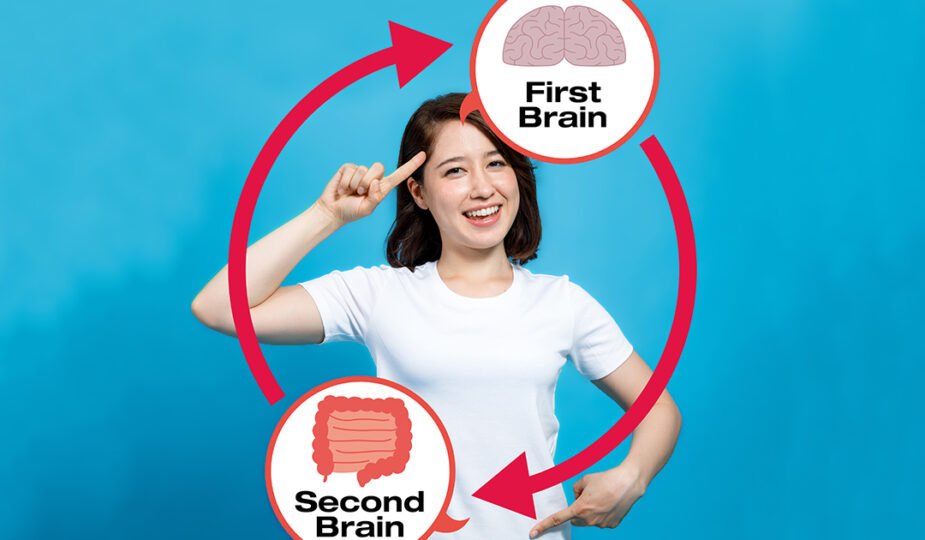
Gut Instincts – How The Tummy Talks To The Brain & Why It Matters
Did you know that your gut is often called your “second brain”? Sounds strange, right? But it’s not just an endearing nickname. The gut-brain connection is a dynamic conversation between your digestive system and your brain, influencing everything from your mood to your appetite. While we often think of our brain as the sole decision-maker, our gut plays an equally pivotal role in our overall well-being.
Hidden within the walls of your digestive system is the enteric nervous system (ENS). This complex system contains over 100 million nerve cells. That’s more than in the spine and peripheral nervous system combined! This network doesn’t help you ponder deep philosophical questions or write an email, but it’s vital for maintaining essential gut functions. Emerging studies have revealed the intricate ways in which the gut and brain communicate. Ever had a “gut-wrenching” experience? Felt butterflies in your stomach? These aren’t just metaphors. They are reactions when the brain perceives danger or stress and signals the gut in response.
Beyond sensations, a growing body of evidence points to the gut’s role in impacting mood disorders and mental health conditions and even influencing decision-making processes. The bacteria in our gut, collectively termed the gut microbiota, produce neurotransmitters. Serotonin, the “feel-good” neurotransmitter, is predominantly produced in our gut. Imbalances in the gut can lead to many issues beyond just an upset tummy. So, how do we keep our gut in top-notch shape to ensure this ongoing dialogue between our brain and belly is both productive and positive? Let’s dive into some less-mentioned yet innovative ways.
Reconsider Your Relationship with Stress
It’s no secret that chronic stress wreaks havoc on our health. But you might not have known that chronic stress is like an uninvited party guest for our gut. High-stress levels can alter the gut’s natural balance, leading to discomfort and even long-term health issues. Engaging in regular stress-relieving activities such as meditation, deep-breathing exercises, or even hobbies can drastically improve gut health. When you tackle stress, you’re not just soothing your mind but also creating a harmonious environment in your gut. Remember, a happy mind often leads to a happy gut.
Prioritize Your Health with Mindful Eating
Eating is not just about filling our bellies. It’s an experience, a ritual. By practicing mindful eating, you don’t just appreciate your meals more; you prioritize your health. Mindful eating is about savoring every bite, chewing thoroughly, and paying attention to how foods make you feel. This simple practice can drastically improve digestion, as breaking down food starts in the mouth. Additionally, when we eat slowly and deliberately, our gut has an easier time processing food. This, in turn, aids in the absorption of nutrients and supports a balanced gut microbiome.

Shake Things Up With Pea Protein Powder
If you’ve ever dabbled in the world of protein supplements, you’ve likely encountered whey and soy protein. But have you heard of vanilla pea protein powder? This plant-based protein is a great alternative for those with soy and dairy allergies and boasts a gut health benefit. Pea protein is rich in fiber, which supports healthy bowel movements. Moreover, the vanilla flavoring adds a delightful taste without the need for artificial sweeteners that can disrupt the gut’s natural flora. Incorporating vanilla pea protein powder into your shakes or recipes can benefit muscle support and promote gut health.
The Art of Fermented Foods
Fermented foods might sound like a trend from a high-end restaurant menu, but their role in boosting gut health is age-old. Foods like kimchi, sauerkraut, and kefir don’t just add a unique flavor to our plates. They’re teeming with beneficial bacteria. Including various fermented foods in your diet can increase the diversity of your gut microbiota. This diversity is crucial. A varied gut ecosystem often indicates good gut health, leading to enhanced digestion and reduced inflammation.
Embrace the Power of Movement
Physical activity isn’t just for muscle tone and cardiovascular health. When you move, you’re also aiding your gut. Regular physical activity can increase gut bacterial diversity, a key indicator of a healthy gut. Any form of movement is beneficial, whether it’s a brisk walk in the park, an intense HIIT session, or even dancing to your favorite song. The enhanced blood flow and movement stimulate the intestines, aiding digestion and promoting regular bowel movements.
Our gut is a universe teeming with life intricately linked to our brain and, by extension, our emotions, choices, and overall well-being. Adopting even a few of the mentioned practices can significantly impact your gut health, ensuring a more harmonious relationship between your belly and brain. Remember, every bite, every choice, every movement, they all count. So, the next time you think about health, think from the inside out, starting with your gut.









